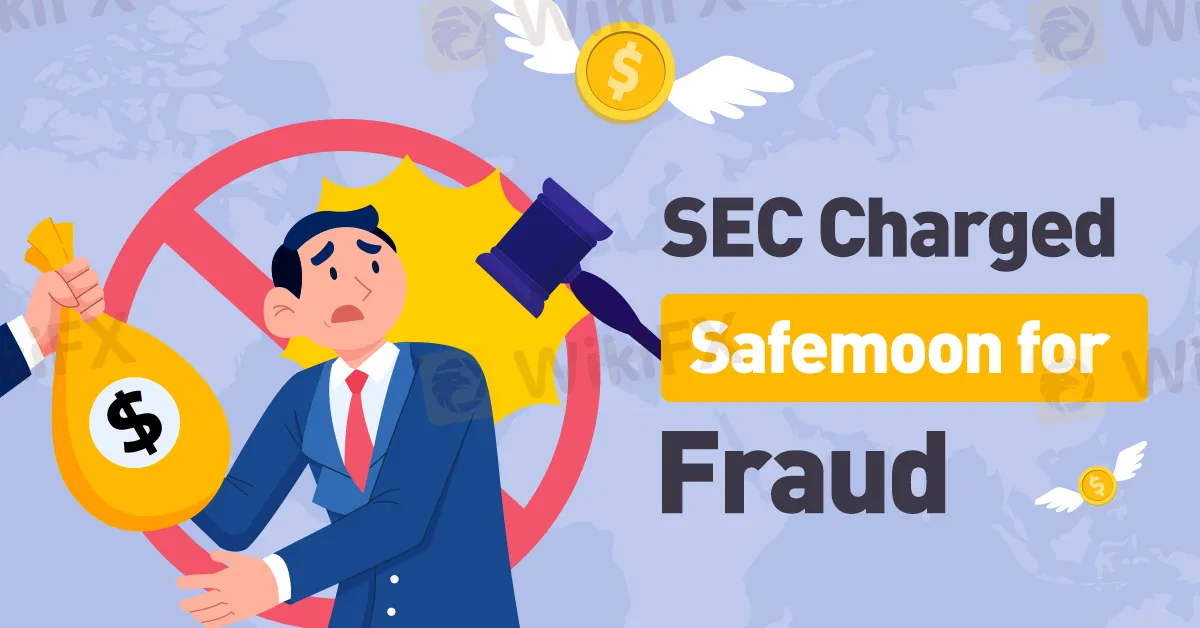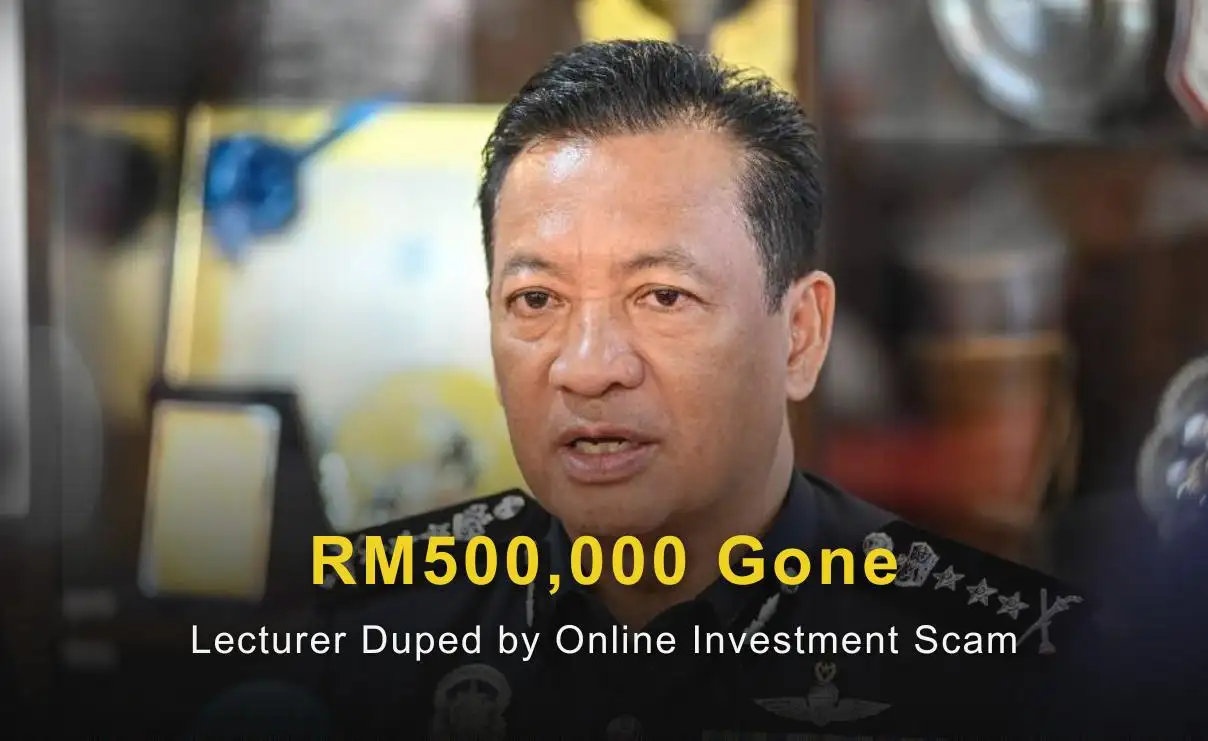RM500,000 Gone: Lecturer Duped by Online Investment Scam
A 39-year-old lecturer in Kuantan has been defrauded of RM493,600 in a sophisticated online investment scam
简体中文
繁體中文
English
Pусский
日本語
ภาษาไทย
Tiếng Việt
Bahasa Indonesia
Español
हिन्दी
Filippiiniläinen
Français
Deutsch
Português
Türkçe
한국어
العربية
Abstract:The U.S. Securities and Exchange Commission (SEC) has filed charges against SafeMoon and its executives for an alleged fraudulent scheme involving the unregistered sale of SafeMoon tokens (SFM), a cryptocurrency that attracted investors with promises of substantial returns, leading to legal action and arrests.

The U.S. Securities and Exchange Commission (SEC) has filed charges against SafeMoon, its Founder Kyle Nagy, SafeMoon US, and company executives John Karony and Thomas Smith. The charges revolve around an alleged fraudulent scheme related to the unregistered sale of SafeMoon tokens (SFM), a cryptocurrency that made enticing promises of significant returns.
The SEC's allegations suggest that the leadership of SafeMoon misled investors by assuring the security of their investments while a substantial portion of the liquidity pool remained unsecured. This purportedly led to the misappropriation of over $200 million for personal use.
The value of SFM saw a remarkable increase of more than 55,000 percent between March 12 and April 20, 2021, resulting in a market capitalization of $5.7 billion during that period. However, this rapid growth was short-lived, as the revelation of the unsecured liquidity pool triggered a nearly 50% price crash in April 2021.
In response to this price drop, Karony and Smith are alleged to have used misappropriated assets to artificially bolster SFM's price and manipulate the market. Additionally, Karony faces accusations of engaging in wash trading, a practice that can create a misleading impression of market activity.
David Hirsch, Chief of the SEC Enforcement Division's Crypto Assets and Cyber Unit, pointed out the vulnerabilities associated with unregistered offerings within the decentralized finance sector, where transparency and accountability are often lacking. These shortcomings can be exploited by individuals for personal gain.

The SEC has initiated legal proceedings in the U.S. District Court for the Eastern District of New York, charging the defendants with violations of the registration and anti-fraud provisions of the Securities Act of 1933, as well as the anti-fraud provisions of the Securities Exchange Act of 1934.
The founders and executives of SafeMoon are now facing federal charges, including conspiracy to commit securities fraud, wire fraud, and money laundering. Karony and Smith have been apprehended, with Karony in Provo, Utah, and Smith in Bethlehem, New Hampshire. However, Kyle Nagy remains at large, and law enforcement is actively seeking his apprehension. The U.S. Department of Justice has also filed additional lawsuits against the SafeMoon founders in a federal court located in Brooklyn.

Disclaimer:
The views in this article only represent the author's personal views, and do not constitute investment advice on this platform. This platform does not guarantee the accuracy, completeness and timeliness of the information in the article, and will not be liable for any loss caused by the use of or reliance on the information in the article.

A 39-year-old lecturer in Kuantan has been defrauded of RM493,600 in a sophisticated online investment scam

Do you have to constantly witness trade delays on the EO Broker trading platform? Have you encountered cases of unfair trade executions where you have recorded heavy losses? Are inconsistent spreads eating into your trading gains? Is the EO Broker withdrawal process too slow? Is the customer support team incompetent in resolving all these trading queries? You are not alone! Many traders have vehemently opposed the broker’s tactics on review platforms. We have highlighted different EO Broker reviews in this article. Read on!

Achiever FX has been receiving flak for numerous reasons, including slow-paced trade execution, lack of transparency, and, importantly, alleged attempts to defraud traders. With its customer support team not able to resolve these issues, traders have allegedly been left alone! They have rightly reviewed the Saint Lucia-based forex broker negatively online. In this Achiever FX review article, we have explored complaints against the forex broker. Keep reading to know the same.

Alpari艾福瑞's notably low overall rating of 2.52 out of 10 raises immediate red flags for traders seeking a reliable forex broker. While the broker has generated sufficient market presence to accumulate 218 documented reviews, the available data presents an unusually opaque picture of their operational strengths and weaknesses. This lack of clear performance metrics across key service areas makes it challenging to provide specific insights into their trading conditions, platform reliability, or customer service quality. Read on for more information.
